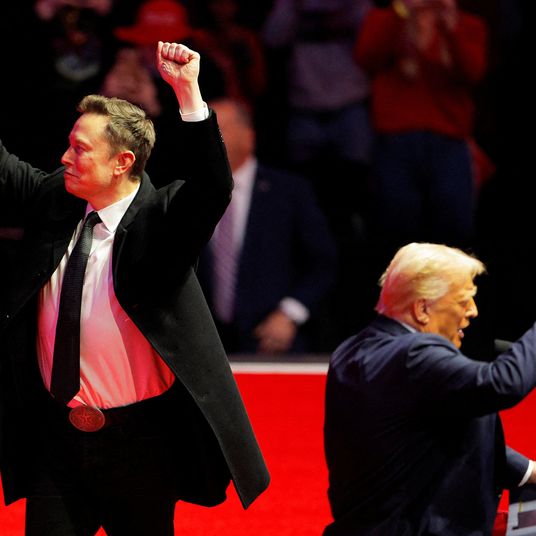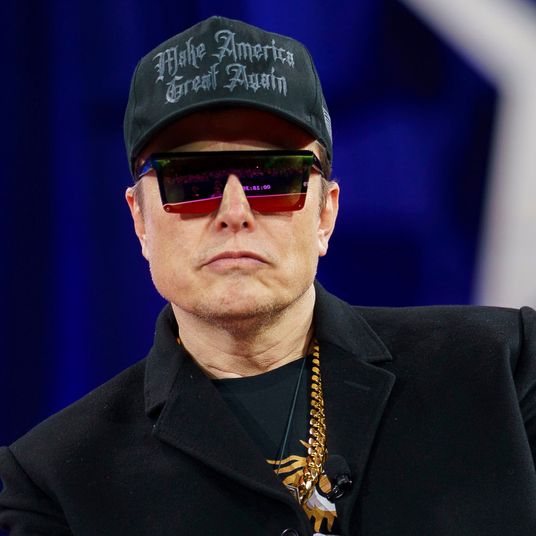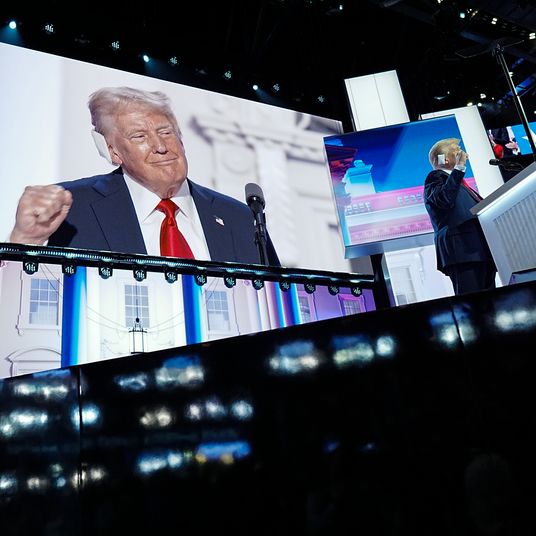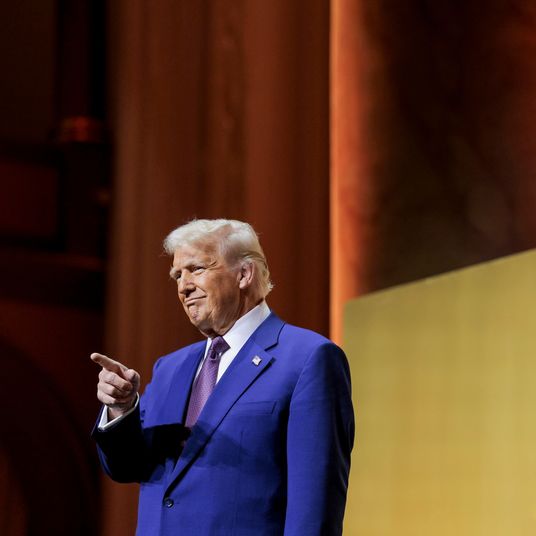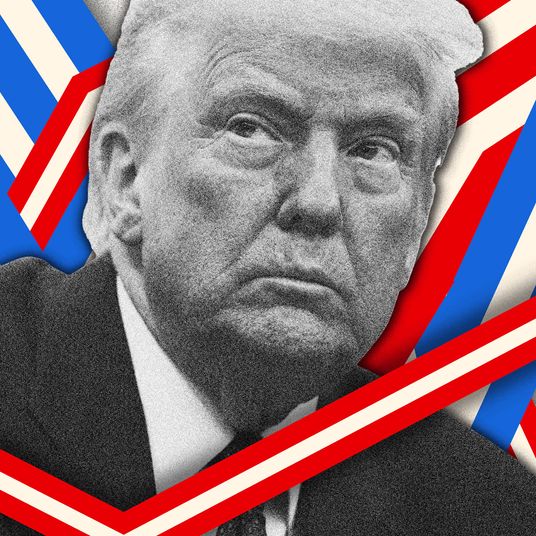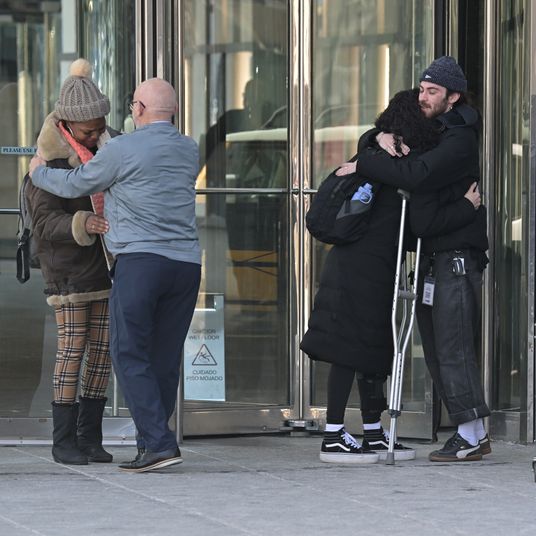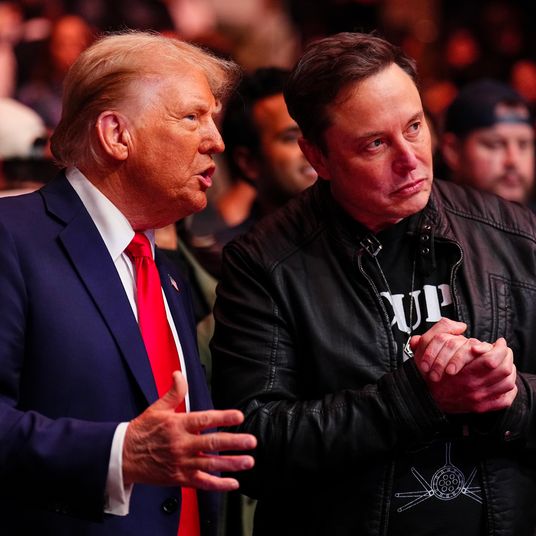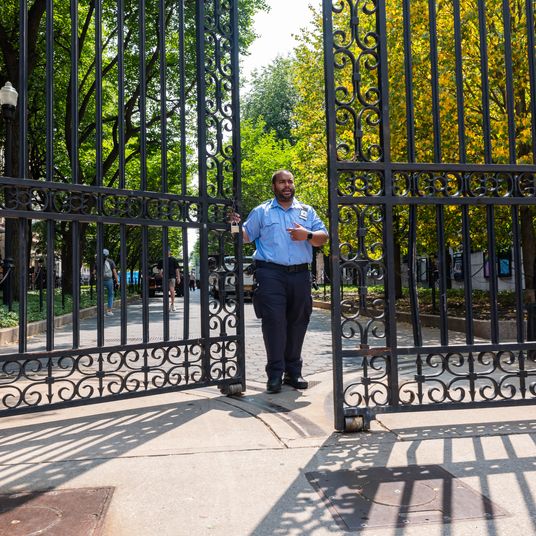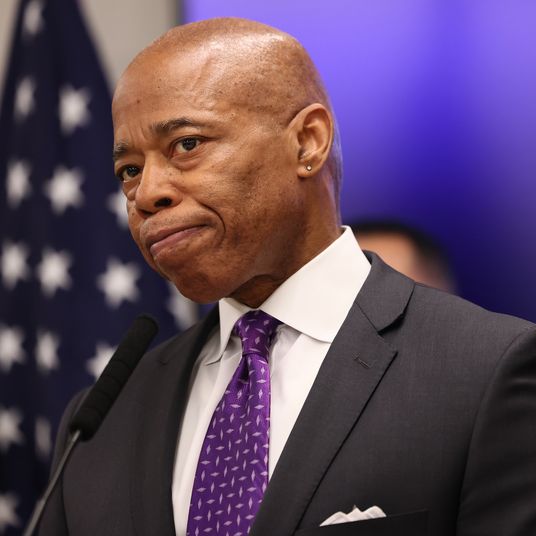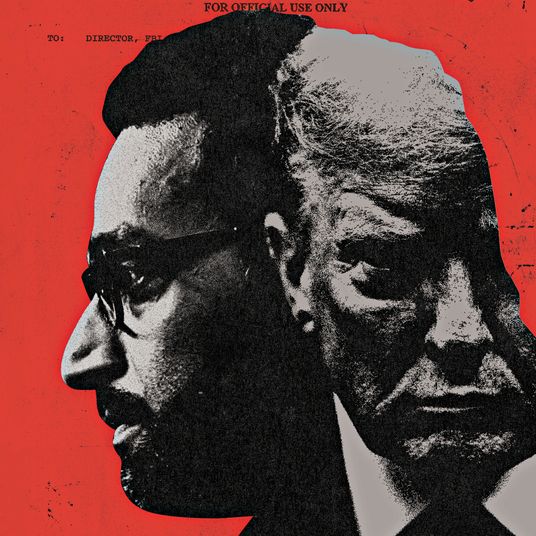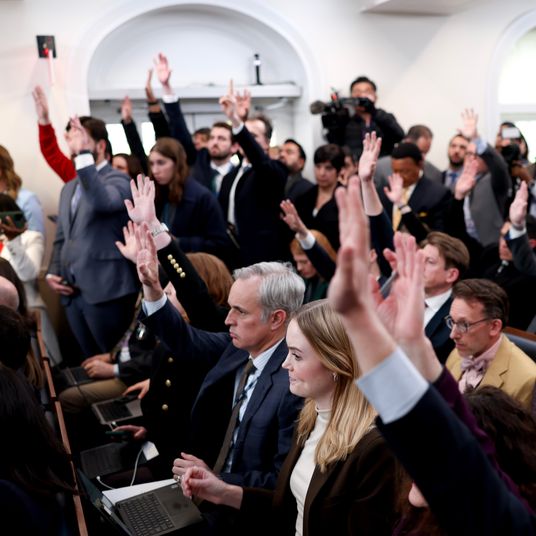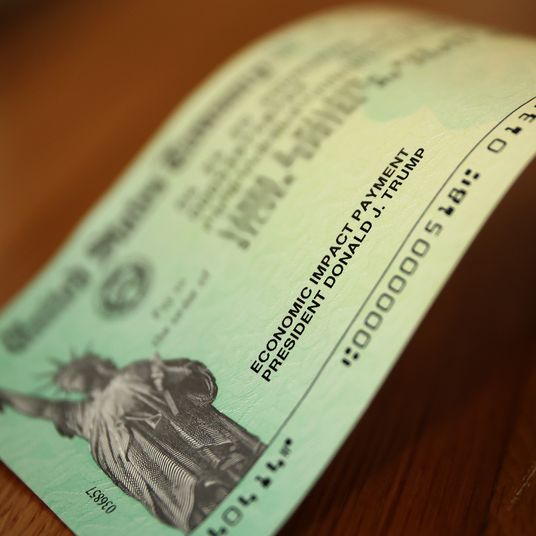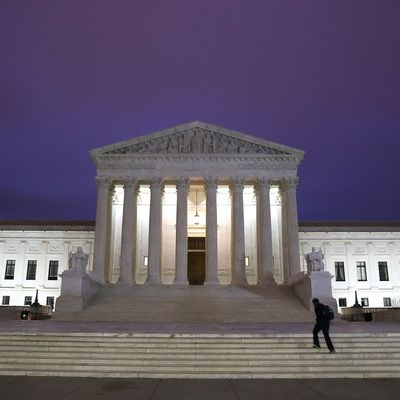
It’s not breaking news that our president says nonsensical or counterfactual things all the time. But one particular claim of his — that his pending impeachment is “unconstitutional” — is becoming relevant since it will soon be an accomplished fact. And so the New York Times’ Adam Liptak assesses Trump’s threat to get the U.S. Supreme Court to intervene to stop the “witch hunt.” It’s largely an empty threat:
The Constitution seems to exclude the court from the impeachment process. It grants the House of Representatives “the sole power of impeachment.” The Senate, similarly, has “the sole power to try all impeachments.” Those are the only provisions of the Constitution that use the pointed word “sole.”
The Supreme Court, too, has been pretty categorical. “The judiciary, and the Supreme Court in particular, were not chosen to have any role in impeachments,” Chief Justice William H. Rehnquist wrote for the court in a 1993 opinion that rejected an impeached judge’s objection to the procedures used at his Senate trial.
The two arguments, both specious, you have heard most often about the “unconstitutional” impeachment process against Trump is that Democrats failed to authorize it by a full House vote (they subsequently did so, though it is not a constitutional or arguably even a congressional rules requirement), and that they are not identifying criminal acts by the president to reach the threshold of “high crimes and misdemeanors.” This latter argument ignores the history of that term of art which makes it reasonably clear the Founders considered any grave misconduct (perhaps especially types that could not be addressed by the normal mechanisms of accountability for law-breaking) grounds for impeachment, and left it up to Congress to set its own standards. But as law professor Frank Bowman observes, that doesn’t keep defenders of sketchy executive or judicial characters from inventing that threshold by conflating “high crimes and misdemeanors” with contemporary criminal-law terminology:
“High crimes and misdemeanors” is not, and has never been, limited to indictable criminality. Nonetheless, despite centuries of learning on the point, there the phrase sits, begging to be taken at its delusory face value.
Accordingly, in nearly every significant American impeachment since 1788, the defenders of the impeached official — whether president, judge, senator, or Cabinet officer — have argued that their man can’t properly be removed, because what he did wasn’t actually a statutory crime. This process has already begun for President Donald Trump. Among the first things the president’s personal lawyer Jay Sekulow said in a September 27, 2019, CBS interview about the Ukraine affair was that the phone call between Trump and Ukrainian President Volodymyr Zelensky involved “no violation of law, rule, regulation, or statute.”
But even if that argument had any merit, the courts are not going to intervene in an ongoing impeachment process to vindicate it, as SCOTUS made clear in the aforementioned 1993 case, notes Liptak:
[T]he 1993 decision did appear to leave open a possible role for the court were the Senate to violate what Chief Justice Rehnquist wrote were “the three very specific requirements” in the constitutional text — “that the Senate’s members must be under oath or affirmation, that a two-thirds vote is required to convict and that the chief justice presides when the president is tried.”
There are no plans in the works to violate any of those conditions, which are in any event in the hands of Trump’s ally Mitch McConnell. Certainly the only threat to the chief justice’s role in an impeachment trial is from certain right-wing Trump allies, not from Democrats, as the Washington Times reports:
In an impeachment trial in the Senate, President Trump would look up to see one of his Washington establishment foes, Supreme Court Chief Justice John G. Roberts Jr., presiding over the historic proceedings from the dais in the upper chamber.
Mr. Trump, who has clashed with Chief Justice Roberts over the perceived political bias of the federal courts, would have to count on him for a fair hearing when the fate of his presidency hangs in the balance.
It’s a prospect that has caused rumblings in Washington that the chief justice should recuse himself.
John Cardillo, a conservative radio personality and host on Newsmax TV, sounded the recusal alarm.
“There is already a crisis of confidence among the American people that we have a fair system of justice. When you have a chief justice of the Supreme Court overtly making comments that are derogatory to the president of the United States, take all speculation out of the process,” he said.
The chief justice’s role in an impeachment trial is largely ceremonial but is specified in the Constitution. It’s unclear what a recusal, if even possible, would accomplish. Is the idea that Trump deserves a trial with Justices Gorsuch or Kavanaugh in the chair? Now that would be impartial, wouldn’t it?
The objection to Roberts, like the objections to the legitimacy of impeachment itself, is just grist for unfocused “witch hunt” allegations designed to get the president’s MAGA base riled up, and to throw sand in the eyes of the small number of voters who are undecided about impeachment and/or open to persuasion in 2020. We’ll hear more kvetching from Trump and his friends until the day the impeachment trial ends, when they will then shift to the exultant claim that he has been “exonerated.”






